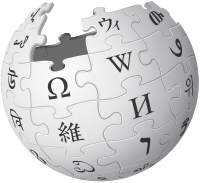
Photo from wikipedia
SUMMARY To characterize contacts in general wards, a prospective survey of healthcare workers (HCWs), patients and visitors was conducted using self-reported diary, direct observation and telephone interviews. Nurses, doctors and… Click to show full abstract
SUMMARY To characterize contacts in general wards, a prospective survey of healthcare workers (HCWs), patients and visitors was conducted using self-reported diary, direct observation and telephone interviews. Nurses, doctors and assorted HCWs reported a median of 14, 18 and 15 contact persons over one work shift, respectively. Within 1 h, we observed 3·5 episodes with 25·6 min of cumulative contact time for nurses, 2·9 episodes and 22·1 min for doctors and 5·0 episodes with 44·3 min for assorted-HCWs. In interactions with patients, nurses had multiple brief episodes of contact; doctors had fewer episodes and less cumulative contact time; assorted-HCWs had fewer contact episodes of longer durations (than for nurses and doctors). Assortative mixing occurred amongst HCWs: those of the same HCW type were the next most frequent class of contact after patients. Over 24-h, patients contacted 14 persons with 23 episodes and 314·5 min of contact time. Patient-to-patient contact episodes were rare, but a maximum of five were documented from one patient participant. 22·9% of visitors reported contact with patients other than the one they visited. Our study revealed differences in the characteristics of contacts among different HCW types and potential transmission routes from patients to others within the ward environment.
Journal Title: Epidemiology and Infection
Year Published: 2017
Link to full text (if available)
Share on Social Media: Sign Up to like & get
recommendations!